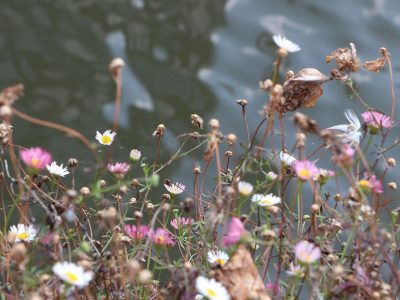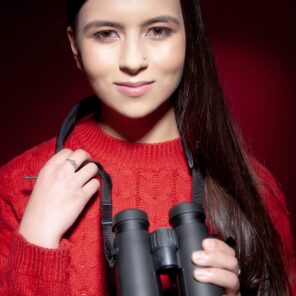Why I set up a nature camp for BAME young people
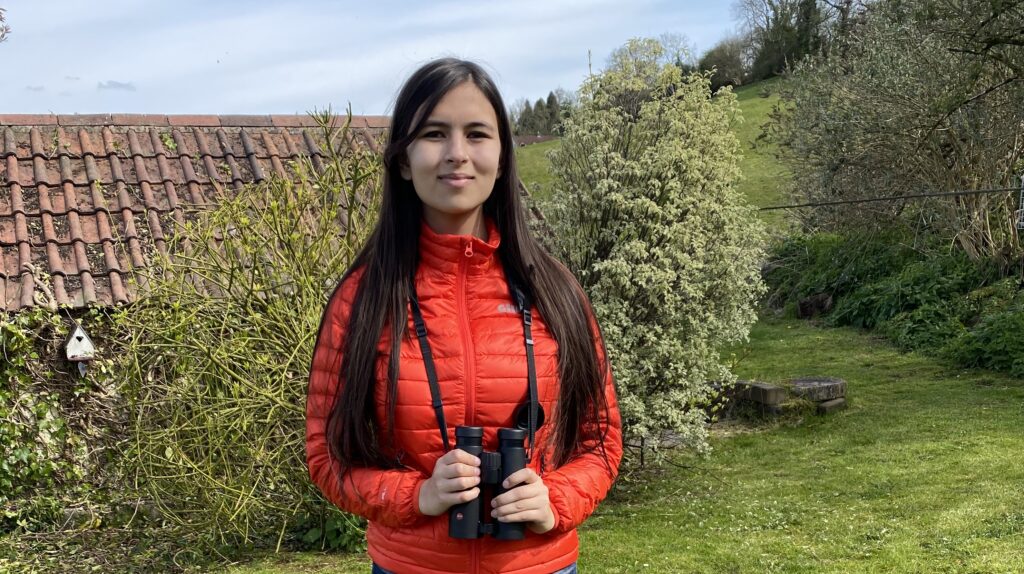
Mya-Rose (aka Birdgirl) tells us why she’s passionate about running wildlife camps for inner-city teenagers
I live in Compton Martin, near Bristol, and my home overlooks the amazing Chew Valley Lake. I love nature, especially birds, and have been going out looking at birds and wildlife all my life.
When I go out into a natural space full of wildlife, no matter how bad I feel before, I always feel calm and peaceful. Since I started my GCSE and A-Level courses, going out into nature has become even more important to help me deal with the pressures of school.
During the Covid-19 lockdown going outside for a walk everyday has been essential to keeping me mentally and physically well. For me it is like a pressure valve that I release before it starts to blow.
During the Covid-19 lockdown going outside for a walk everyday has been essential to keeping me mentally and physically well. For me it is like a pressure valve that I release before it starts to blow. I really appreciated how lucky I was to have a garden to sit in and countryside to walk in and how lots of people in Bristol were not so lucky. Friends told me how the roads had cars double parked on their already narrow pavements and so it was impossible to go for a walk without having people bumping into you. I therefore wrote a lot about how you can connect with nature through a window, for instance watching the sunset, watching the night sky or listening to the dawn chorus, when the birds sing in the early morning. Without the traffic, everything sounded louder and better, or maybe it was that we were listening more.
I managed to get a big group of young people to sign up, which was fantastic, but I felt uncomfortable that they were almost all White British boys who lived in the countryside.
My Dad has been birding forever. My Mum is British Bangladeshi and grew up in Bristol. She only became interested in nature after she met Dad, but my mum being a birder has helped me because I grew up believing that it was normal. However, my biggest inspiration was my older sister Ayesha. If she loved birds, then I was going to love them too. That is why I believe that mentors who look like you are so important to young people.
In 2015, I read about American birding summer camps. At that time, there were no birding camps here, so I decided to organise one. I wanted it to be over a weekend, be affordable, be after exams and have lots of birding and nature activities. I managed to get a big group of young people to sign up, which was fantastic, but I felt uncomfortable that they were almost all White British boys who lived in the countryside.
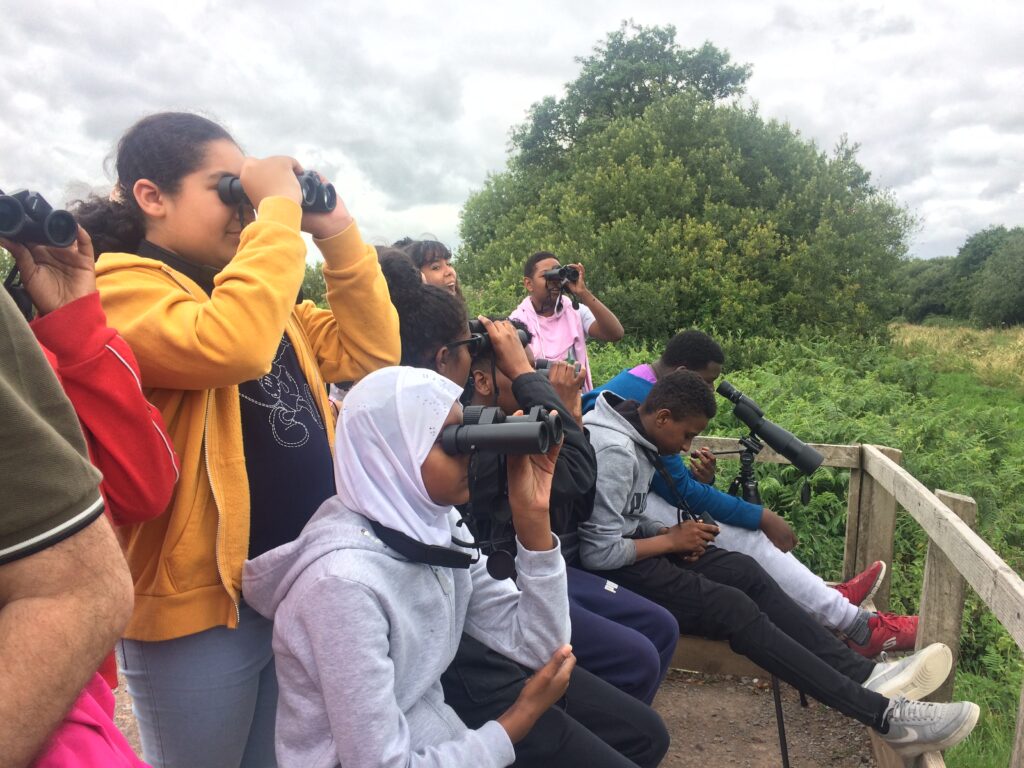
I then read an article about the lack of BAME people visiting nature and what was being done in the USA to engage these teenagers. This made me realise that I could inspire BAME teenagers to connect with nature. I had met lots of naturalists and conservationists in Asia, Africa and Jamaica so knew what was holding lots of BAME people back was being immigrants living in the inner-city. The Natural England 2016 MENE Report looked at how often children visited green spaces. 74% of non-BAME children visited frequently, which drops to 56% for BAME.
Initially, no BAME teenagers signed up, despite us offering free places and allowing parents to come. Then I enlisted the help of diversity experts working within BAME communities, and after a lot of hard work and meeting parents many times, I managed to persuade seven other BAME teenagers to attend. Activities included birding walks, wildlife photography, bird sketching, bird ringing, moth trapping, making nest boxes, pond dipping, looking for Nightjar and lots of talks.
At first, the other teenagers didn’t know how to enjoy the nature around them. Then, something clicked. For one boy it was holding a bird during bird ringing. He was a ‘tough’ 15-year-old boy from the inner city seeing a bird closely for the first time and seeing his pure delight was a special moment. You have to make nature relevant and talk about it in a way that young people can relate to it – a young volunteer talked to them about the speed a Peregrine Falcon drops before catching prey and compared it to the speed of a Formula 1 car. The boys were suddenly mesmerised because they could relate the bird to something they understood.
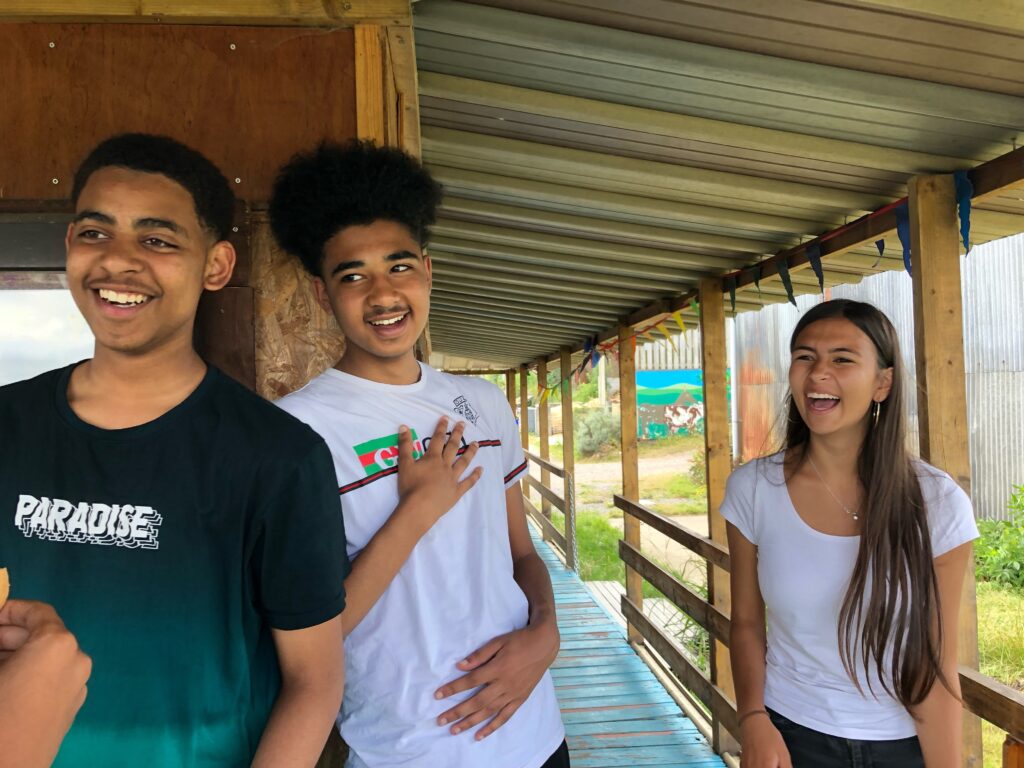
Camp Avalon is very important as there are no other nature camp opportunities for BAME young people who do not already have an interest in the environment. In 2017, we ran our first one-night nature camp for primary age children in the Chew Valley, Camp Chew, which is extremely popular. BAME children and local children attend together, to promote community cohesion. We also use ‘nature by stealth’ when we give the young people what they are interested in but using nature as the forum, like workshops on YouTubing in Eastville Park.
Camp Avalon is very important as there are no other nature camp opportunities for BAME young people who do not already have an interest in the environment.
It is important that camps and events are culturally and religiously appropriate. For example, our camps are vegetarian apart from one takeaway halal fish and chips at the children’s camp. We also highlight that we have adults sleeping near the entrance of the tents so that intruders cannot enter. Our camps are successful because as Muslims, we can reassure Muslim parents. We are also open to parents coming if they want to come and understand our camps.
Every child who has attended our camps has connected with nature. Each has gone home knowing a lot more about birds and wildlife and say that they have started to notice them in their local parks or as they walk about the city. This is important for managing mental health issues as well as coping with racism and bullying with a disproportionate number of BAME people experiencing severe mental health issues in the UK. 60% of the people admitted into a hospital for mental health issues are BAME, three times the national average.
Every child who has attended our camps has connected with nature. Each has gone home knowing a lot more about birds and wildlife and say that they have started to notice them in their local parks or as they walk about the city.
This year, I ran two camps for teenagers and two camps for primary age children, which I could have filled many times over. I hope to run many more camps during 2020 and increase from there, connecting BAME young people with nature through sharing passion, expertise and knowledge. I am working with children from areas of deprivation in Bristol, who other than at Camp Chew, rarely have fish and chips or even an ice-cream. I hope to run a crowdfunding campaign soon to raise £20,000 to buy a minibus, which we can also hire out to help pay for our camps, making ourselves more sustainable.
We also need volunteers to make it possible to run more camps. It would be great to have younger volunteers, acting as role models, to help with activities, collecting equipment by van, putting up and taking down tents, driving minibuses, cooking and washing up, nurturing attendees and finding ways to make nature relate to them.
Mya-Rose is currently visiting the Arctic ice shelf with Greenpeace to bear witness to how much the sea ice has melted and push for a strong UN global oceans treaty to help stop climate breakdown . Follow her journey on her Twitter and on her blog.

About Rife


